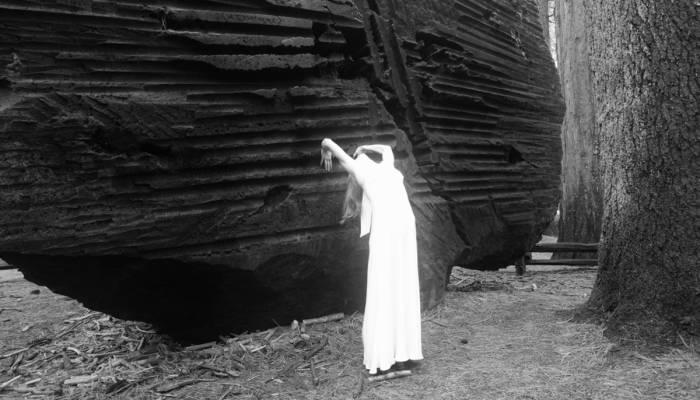The Invention Of The Irish Garden
Mary Reynolds has created a sort of Celtic Renaissance of gardens, and the result is fantastic.

As poet W.B. Yeats relied on mythology to lead his nation to a metaphorical significance and to create an Irish consciousness of nationhood, so garden designer Mary Reynolds uses elements of Celtic folklore to invent a new aesthetic of the same country: the Irish garden.
Before Reynolds, the most celebrated Irish gardens had been designed by the British, with hedges, grass and clear, traditional constellations of roses. But Reynolds’ approach, which could be defined as a Celtic Renaissance, stakes a position set clearly apart from the rest. She chooses varieties and species that grow together naturally and doesn’t believe in weeding or breaking ground. More esoterically, she asks the ground what it wants to become. “Gardens today are controlled, manipulated spaces,” she told the audience at the book launch in Cork. “It’s like forcing a child to wear a pink tutu.”
What the garden really wants, Reynolds says, is to evolve into a forest.
Some of her most famous gardens have invoked ancient kings, poems by Yeats and all sorts of imaginary beings native to Ireland. But her ultimate purpose is to invite people to conceive a simpler way of living. “If you can only go more slowly and reintroduce yourself to the ground, a magic door will open for you,” she writes in her book The Garden Awakening.
At 28, Reynolds won Ireland’s first gold medal at the Chelsea Flower Festival, in a category that also included England’s Prince Charles. From there the gates were opened to designing gardens and even the British government commissioned a garden in no less than Kew Gardens. For this garden, Reynolds was inspired by Yeats’ poem, “The Stolen Child,” and the result is an ocean of moss in the form of a sleeping fairy.
Like pieces of Ireland, her gardens are planted with freedom. And in the spells cast there are echoes that resound like the early poems of W. B. Yeats, following a sinuous path, on the return to Ireland and its extraordinary roots.






Related Articles
When ancient rituals became religion
The emergence of religions irreversibly changed the history of humanity. It’s therefore essential to ask when and how did ancient peoples’ rituals become organized systems of thought, each with their
Larung Gar, the valley that is home to thousands of Buddhist monks
If we think about the monastic life it is very probable that we think about solitude, seclusion, silence and a few other qualities whose common denominator is the appropriate isolation for mediation
Dialogue with the Dalai Lama on science and spirituality
The Dalai Lama has been interested in science since he was a child. Over the years he’s visited many laboratories and has attended conferences that discuss consciousness from the scientific point of
A New Year's resolution for the earth
Worrisome quantities of waste are generated by human populations. Especially in cities, these have reached unprecedented and alarming levels. A largely uncontrolled practice, it affects everything on
The Dark Mountain Project: or how literature can confront ecocide
One impulse from a vernal wood May teach you more of man, Of moral evil and of good, Than all the sages can. Wordsworth, “The Tables Turned” (fragment) Words are elementary. The only reason we can
Are there no women in the history of philosophy?
Do only men philosophize? This could sound like a silly question, but if we quickly review the names of philosophers, from Aristotle to Slavoj Žižek, it would appear to be an exercise that is
Things that are about to disappear: photography as environmental conservation
Cristina Mittermeier is the founder of the International League of Conservationist Photography (iLCP), and is at the front of a modern movement to use photography with environmental purposes. Her work
Architecture And Music; An Affair That Acts On The Matter
A composition is like a house you can walk around in. — John Cage Perhaps music, more than the art of sound, is the art of time. That’s why its communion with space, and architecture, is so often so
Psycho-geography (On The Ritual Casting of a City)
Mrs. Dalloway walked down the streets of London guided by an “internal tide” that made her stop somewhere, enter a store, turn at the corner and continue her journey, as if she were adrift. La dérive
A Theme Park Inspired by Hayao Miyazaki is About to Open …
One of animation’s most spectacular exponents, Hayao Miyazaki, is the artist who transformed the direction of traditional animation forever.










